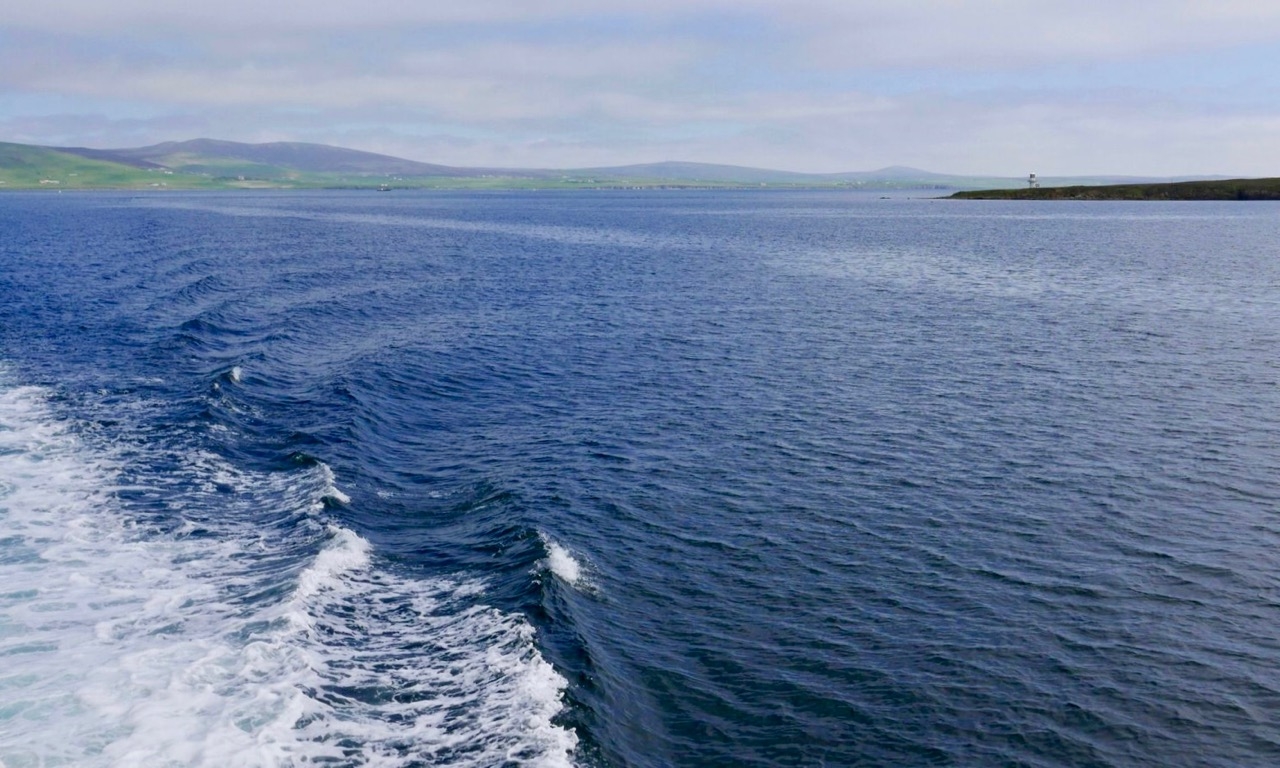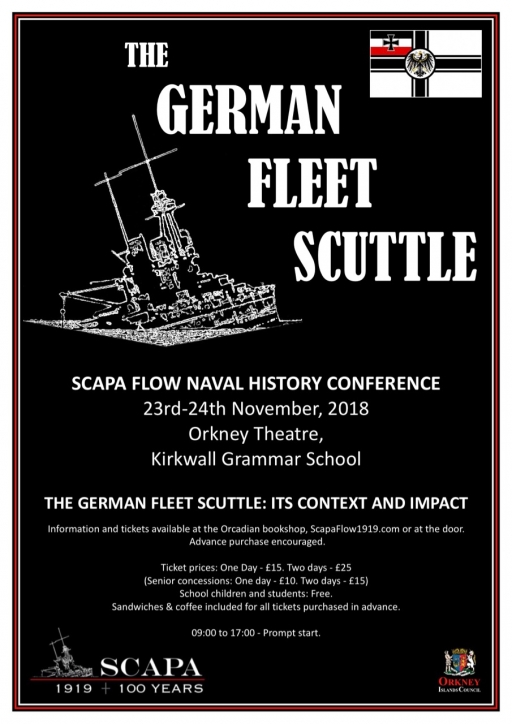Historians will gather in the Orkney Islands in November for a conference to discuss the impact and legacy of the scuttling of Germany’s First World War surface fleet.
The destruction of dozens of ships by their own crews in Scapa Flow on 21 June 1919, a week before the signing of the controversial Versailles Treaty, added an unexpected twist to the protracted peace process.
It was memorably witnessed by a party of local children who were on a school outing to the anchorage when the High Seas Fleet suddenly began to go down.
The Scapa Flow naval history conference in Kirkwall, on 23/24 November 2018, is organised by Nick Jellicoe, whose grandfather, Admiral Sir John Jellicoe, fought that same fleet as commander of the British navy at the Battle of Jutland in 1916.

Scapa Flow, a vast natural harbour within the Orkney Islands, was used as a British naval base in both world wars. The Royal Navy escorted the High Seas Fleet to internment there soon after the 1918 Armistice. Germany’s U-boats were detained separately at Harwich, on England’s east coast (Photo: Centenary News)
The conference will consider not only the scuttle, and its repercussions among the Great Powers, but also look at the role of the American navy in helping Britain fight the submarine war; Germany’s own interpretation of its naval role in WW1; and the maritime archaeology and ecology of Scapa Flow today.
Nick Jellicoe says: “Before the Centenary itself, this will be a wonderful opportunity to share Scapa’s history, stimulate ideas for 2019 and build a lasting knowledge of what happened and why a century ago.”
Following the Armistice in November 1918, 74 warships of the German High Seas Fleet, ranging from mighty battleships and battle-cruisers to destroyers, were interned in Orkney’s waters pending a decision on their fate at the Paris Peace Conference.
The fleet’s commander at Scapa Flow, Rear Admiral Ludwig von Reuter, gave the order to scuttle on 21 June 1919 as the haggling drew to a close hundreds of miles away in France.
 The graves of German sailors, who died in the scuttle, at CWGC Lyness Royal Naval Cemetery on the island of Hoy (Photo: Centenary News)
The graves of German sailors, who died in the scuttle, at CWGC Lyness Royal Naval Cemetery on the island of Hoy (Photo: Centenary News)
Last to sink was the battlecruiser SMS Hindenburg, launched in 1915, and named after Field Marshal Paul von Hindenburg, supreme commander of the German army.
Most of the fleet was salvaged during the inter-war period, but seven ships still lie beneath the waters of Scapa Flow.
The Scapa Flow History Naval Conference will held at Kirkwall Grammar School on 23-24 November 2018. Visit Shop Scapa Flow 1919 for more details of speakers and booking.
Conference image courtesy of Nick Jellicoe
Scapa Flow & Lyness Cemetery images: Centenary News.
Posted by: CN Editorial Team
___________________________________________________
